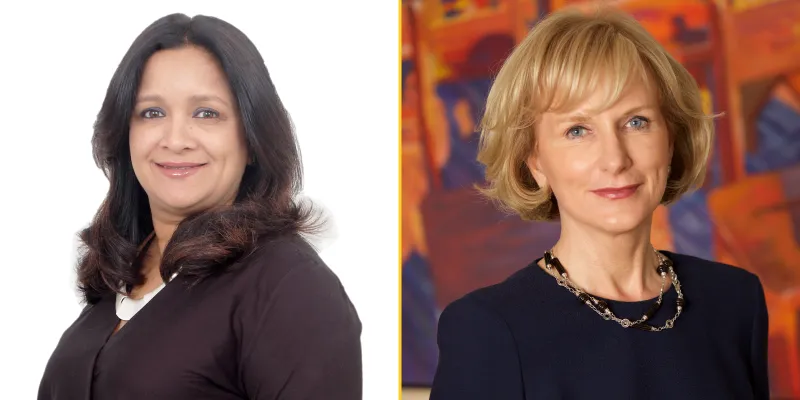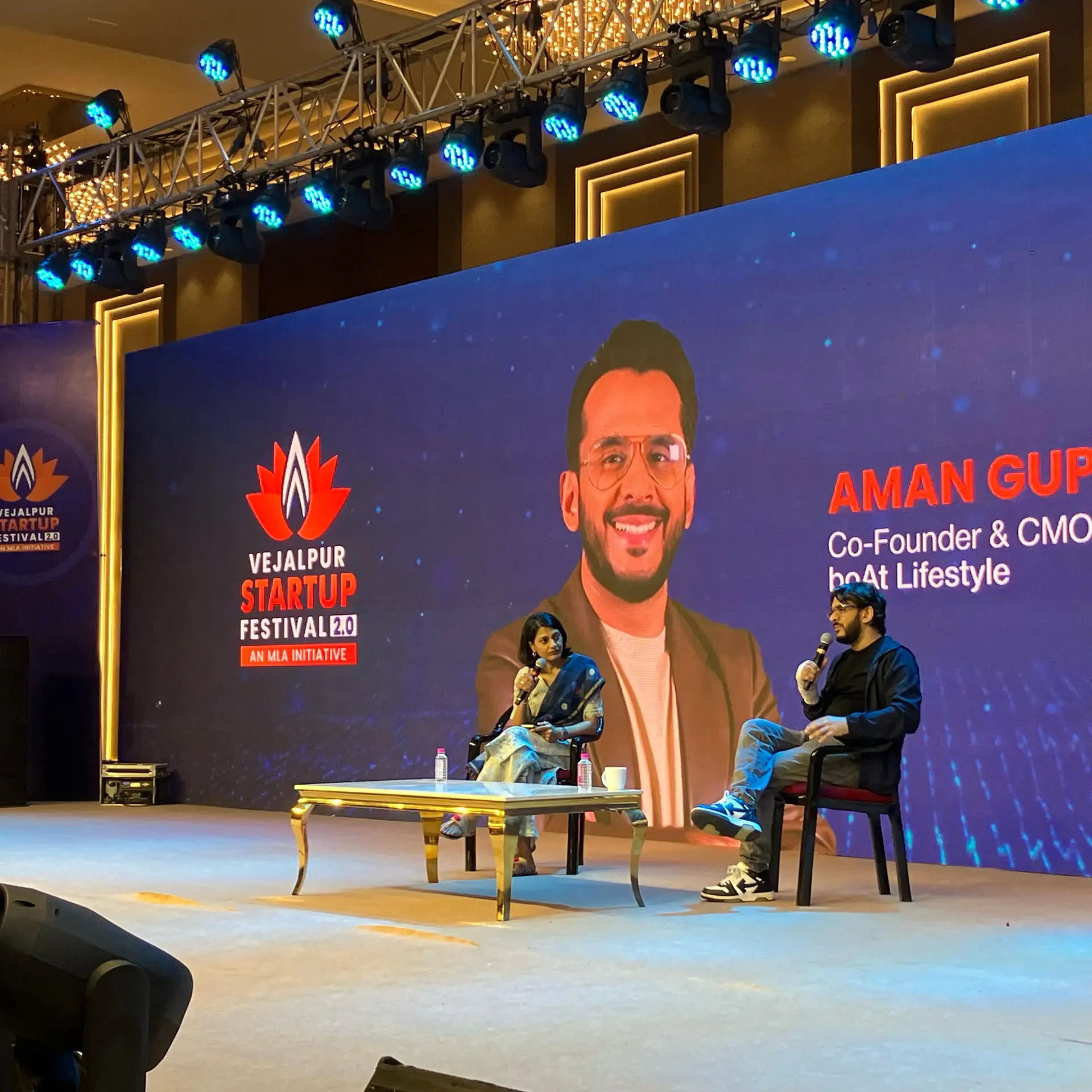Microsoft for Startups sets the stage for unicorns to emerge from Tier II cities
The Microsoft for Startups programme’s Highway to a Hundred Unicorns initiative is keen to tap into startups from Tier II locations in India, and having them closely integrated with the company’s cloud platform, Azure
The vibrant startup ecosystem in India has witnessed the creation of more than two dozen unicorns, with a majority of them located in Bengaluru, Delhi, or Mumbai. But Microsoft, the global software giant, wants to change that.
The company, which has been closely engaged with the Indian startup ecosystem for quite some time now, recently launched its Highway to a Hundred Unicorns initiative through the Microsoft for Startups programme in order to reach out to startups from the Tier II cities. And closely aligned with the startups programme is the company’s cloud platform, Azure.
In a conversation with YourStory, Gayle Sheppard, Corporate Vice President, Azure Data, Microsoft, and Lathika Pai, Country Head, Microsoft for Startups - MENA & SAARC, speak about their plans for startups in India, in particular those from non-metros.
Edited excerpts of the interview:
YourStory: How do you view the Indian startup ecosystem?
Gayle Sheppard (GS): In my last visit to India in 2019, I heard there were 37,000 startups founded by university graduates. The opportunity is profound as there are brilliant founders who are thinking of ways to create software applications and other technologies that could be world-changing.
I’m excited about supporting Microsoft’s ‘Highway to a Hundred Unicorns’ programme and see how we can inspire and motivate startup founders to work with our data platform to create the next-generation analytics tools that businesses need.

Lathika Pai, Country Head, Microsoft for Startups, MENA & SAARC (left) and Gayle Sheppard, Corporate Vice President, Microsoft Azure Data
YS: How is Microsoft’s Azure platform helping startups in India?
GS: If one combines our developer tools, data platform, open source choices, and analytics platform, there is a whole suite of tools, which, when put together with the startup programme and advisors, is a very powerful offering. One can also easily customise it. When we talk about one platform it is about what works for them. We do not believe in the one-size-fits-all theory.
Lathika Pai (LP): Azure is not just a hosting service but is a platform of multiple capabilities. One important thing we have identified as we go on the Highway programme is that many of the State governments are willing to work with us, creating sandboxes to provide access to technology. We are in a position to help as many people as possible, especially startups. What we bring to the table is the Azure platform-as-a-service.
YS: What is Microsoft’s level of engagement with startups?
GS: We have a terrific programme of identifying startups right from the seed stage with our various teams. We are in it from the beginning, and right up to the exit. The question is how do you manage, build, and allow it to excel. There are various programmes that are driving it.
LP: We have teams for the startups right across from the early stage and Series A, going all the way to the unicorn group. Focusing on India, startups are a large part of our agenda and there are many groups within Microsoft that come together. We have a focused approach on how we engage with startups and looking at it strategically. At every stage of a startup, there is a team at play.
We are looking at our core capabilities and what the founders need at a particular point. Being a large organization, we are able to ensure that there is a team to guide and assist these startups.
YS: What has been your experience with the ‘Highway to a Hundred Unicorns’ initiative?
LP: Let me tell you the reason why we called it ‘Highway to a hundred Unicorns’. Most of the unicorns are either from Delhi or Bengaluru and there is nothing coming from smaller towns. Are there great startups? The answer is yes. But if one digs deeper, we find out that these startups do not have the exposure, technology, or support. We want to make sure that some of the startups are there in the hundred list. What is even more important is to engage with the startup ecosystem to get them to the next level.
The unicorn status is more of an aspiration value. It is not really about valuation but about creating value and jobs. In the last five months, as part of the Emerge X programme, one startup each from Rajasthan and Kerala were able to raise funding. Now, investors are taking time to understand what is happening in the Tier II ecosystem. What we have seen is that startups from Tier II locations get their unit economics ahead of time but what they lack is advisors, mentors, and knowledge on ways to leverage technology.
In every State we go to there is a broader engagement with the ecosystem. But there is the question of getting them closer. Now they are coming back with curiosity, but we can get more of this happening.
YS: How do you see the level of enthusiasm for startups in Tier II cities?
LP: It is huge. Every State government has a startup policy and there are enough number of ecosystem players. In our engagement with various governments we get our programmes, technology, and tools. Many States are giving space and grants, but they run out of them. We tell the State governments to give startups access to technology and business.
We are very confident that if we keep going down this path of engagement and helping the State governments in rolling out their programmes for startups then it is going to be a win-win for everybody. We do not want startups to move out of their State. Now we are also going to the Northeast.
YS: Will startups in India get connected to large enterprises through Microsoft?
GS: I think so. I see a couple of forces at play. One is the integration of startups with the enterprise network and that is just natural. Secondly, I know several software companies of Indian founders that have a big presence in the US. It is about learning from others’ successes.
Finally, we will introduce new software startups to our customers and enterprises, where they become part of the fabric. Another dimension is that as Microsoft is advancing on our products, we are always looking at unique solutions to solve customers’ problem. Everybody has the opportunity to participate in that, whether it is the startups in India, the US, or Israel.
(Edited by Evelyn Ratnakumar)




![[Woman in Tech] As Principal Group Engineer Manager at Microsoft, Padma Priya Gaggara’s aim is to drive new technologies and build a great team of engineers](https://images.yourstory.com/cs/4/8e7cc4102d6c11e9aa979329348d4c3e/Women-in-Science-and-TechHerStory-2-1578978193050.png?fm=png&auto=format&h=100&w=100&crop=entropy&fit=crop)




